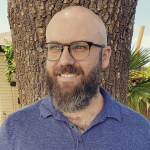The fundamental lesson of economics can be summed up in one phrase: trade-offs. Because resources are scarce (which means they are some amount less than unlimited), when we use them to do one thing, that means we cannot use those same resources to do another thing. This applies to all kinds of resources.
If I spend a dollar on a Snickers bar (or half a Snickers bar now I guess), I can't spend that same dollar on a Twix bar. If I spend an hour working on a garden, I can't spend that same hour working on an article. If I use one gallon of gas to drive to the supermarket, I can't use that same gallon of gas to drive home.
There is a trade-off every time I use or consume something, and the trade-off is what I didn't do or didn't consume. This trade-off is often called "opportunity cost."
Economics, at its root, is the study of trade-offs.
Resources are scarce, and scarcity sounds like a bad word. Truthfully, it's neither bad nor good - it just is. There is only so much of any given resource; this is just a statement of fact. It's true for our own personal resources, such as our time and human capital, as well. The full story is a little more complicated of course. Thanks to human ingenuity, we have a long track record of finding new ways to use old resources more efficiently, and making things into resources which previously weren't useful. Thomas Sowell wrote how oil wasn't a resource for thousands of years until people figured out how to use it.1
There's really no reason to think this kind of problem solving won't continue, but it doesn't change the fact that what we can't do is produce more of a finite resource. There's only so much oil or copper or iron ore in the ground. A day has 24 hours no matter the level of innovation. Your life and mine will come to end one day and we will be out of human capital.
We can't have it all. There is simply no way. And that is alright.
But godliness with contentment is great gain, for we brought nothing into the world, and we cannot take anything out of the world.
1 Timothy 6: 6,7 ESV
Scripture teaches us to embrace the fact that we can't have it all. Paul puts forward this fundamental truism: we didn't bring anything with us when we were born, and we won't take anything with us when we die. Even the earth itself is finite in some grand sense. Recall how, in his revelation, John saw the "first earth" pass away and give place to a new earth (Revelation 21:1).
Our lives on this earth are scarce, but that doesn't have to be a source of pain for us. Instead, developing godliness and practicing contentment represent a path to a much deeper and longer lasting gain - a gain connected to an eternal life where scarcity is no longer the rule.
1. See Wealth, Poverty, and Politics by Thomas Sowell, pg 22

